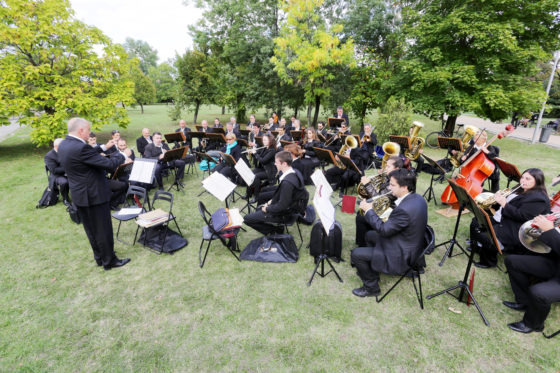Poor air quality from this summer’s wildfires affected B.C.’s outdoor entertainment industry. Employers should start preparing now for next season.

Photo credit: iStock.com/Cylonphoto
A number of outdoor music events in B.C. were cancelled this past summer due to wildfire smoke.
Don Parman works for ActSafe, the health and safety association for B.C.’s entertainment industry. Recently, he met with a group of event promoters to remind them why it’s important to do a risk assessment for performers (and others) facing poor air quality during wildfire season.
“The forest service said these conditions are likely going to be an annual occurrence now. You need to be prepared for this because it’s not going away any time soon,” Don told them. “Put it into the safety pipeline right away so you can start working on it ahead of time.”
As manager (and acting executive director) for ActSafe’s Performing Arts Programs and Services, Don fielded questions from employers who needed solutions this past summer.
Says Don: “I spoke to one group who really wanted their event to go ahead so they bought respirators for the performers to use when they were off-stage. It helped, but it didn’t solve the problem. Above a certain level, the smoke saturation is so heavy that you can’t get away from it.”
Every situation is different, but other options might include rescheduling an event or changing location.
Risk assessment for exposure to wildfire smoke
“Now that the season has passed and the smoke has cleared, it’s a good time for employers to look at their health and safety programs,” says Lisa Houle, a WorkSafeBC Industry and Labour Services manager. “It’s a good idea to plan and get ahead of next year’s work activities because similar fire seasons are possible.”
She adds that when employers are faced with a new hazard, they sometimes jump straight to the “what to do about it” stage. But the first step is to look at the bigger picture by doing a risk assessment. Employers should consider questions such as the following: Where are your operating locations? How many workers will be on site? How likely and often might workers be exposed? What are your options for controlling exposure? Those types of questions will lead you to the “What should we be doing?”
Says Lisa: “You need controls in place and the only way to do that is consider all the risks. To respond appropriately, you need a health and safety program with procedures and policies.”
For more information, see Health and safety resources for wildfire season and Assessing risks, both from WorkSafeBC.


